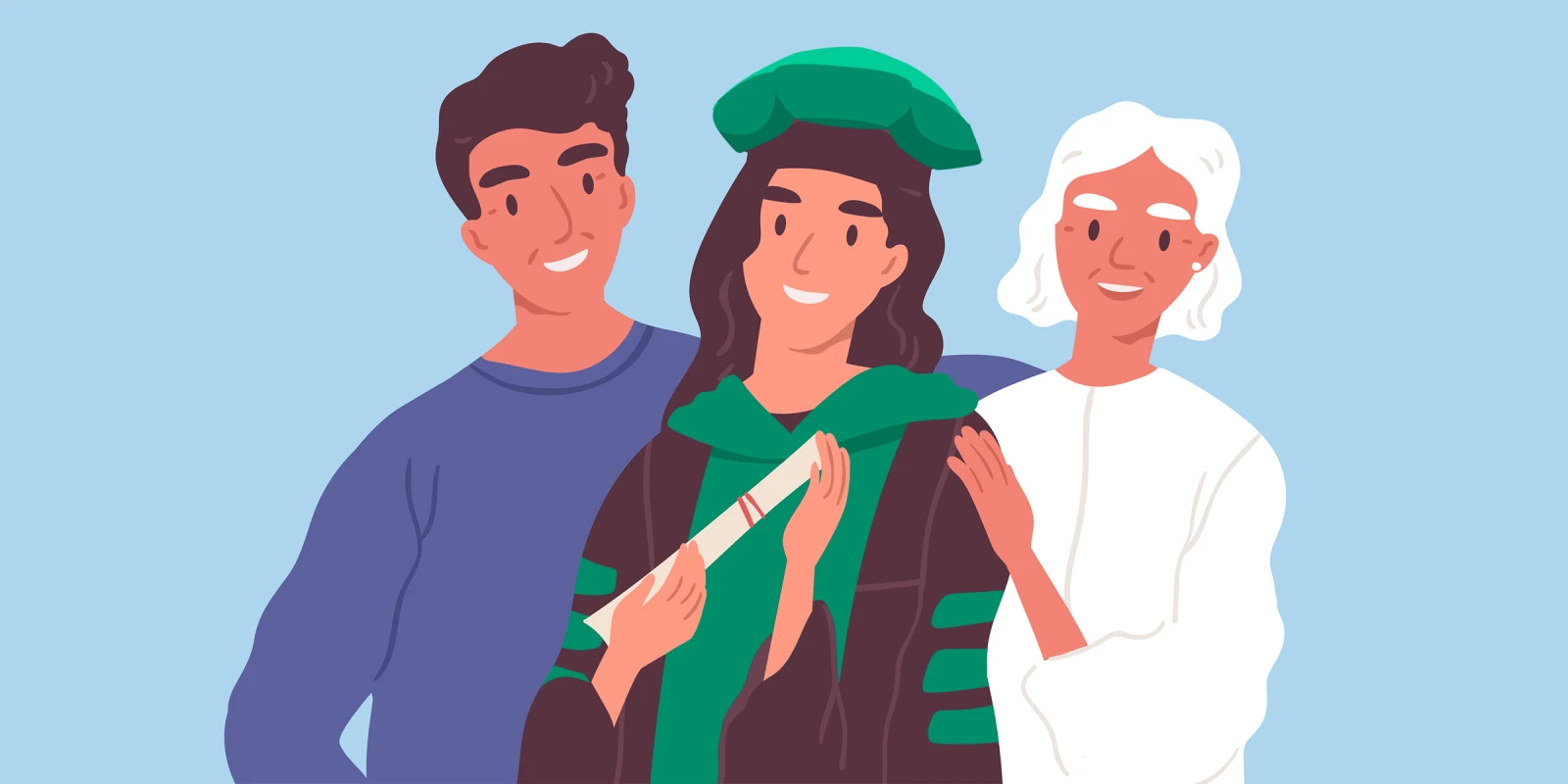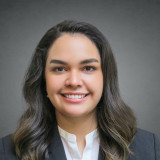It was sweltering hot the day I graduated from medical school. The gym where the ceremony was being held was getting muggy and I was sweating beneath my robes, but I was overjoyed. Sitting on a foldable chair, watching my classmates transform from medical student to doctor, I was surprised and overwhelmed by a rush of emotion. Here I was, a Latinx woman from a low-income family from the borderlands, and I was about to become the first physician in my family. To say that it wasn’t easy is an understatement. Medical school was full of unexpected developments and challenges, and I was underprepared for most of them. I learned almost right away that I was in over my head when I came to medical school. No one around me had done it before, after all, and the fact that I was sitting here sweating at my own graduation ceremony felt like nothing short of a miracle.
Among the many experiences I was not ready for when I started medical school was the lack of stability. The courses cycled much faster during the preclerkship years than they did in undergrad. Just as I was getting the hang of it, the topic and expectations would change, and I would find myself unmoored again. I was also constantly working on different timelines at the same time: My research project would span years, while my current rotation would last only six weeks, and my mentoring gig with the first-year students would last for a few months. My finances were always precarious, even when I tried to plan. And my eating habits were never predictable, especially in my clerkship years. At first, I kept waiting to settle into a routine, hoping to hit a good cadence, before I finally came to accept that it likely would not happen.
I was also not ready for the isolation that I experienced when I first started medical school. There is a wide gap in student privilege, and I was underprepared for navigating this difference. It never failed to amaze me how many of my classmates had parents who were doctors. If their parents weren’t doctors, then they usually came from families that were well-off financially. There were precious few other students whose parents weren’t doctors, and even fewer still who came from low-income families. Perhaps a part of my struggle was due to how uneven the playing field was. It makes a difference when parents can subsidize your one-bedroom apartment and your groceries, or help you get connections for research or mentorship. Those of us who were less fortunate, including many who are underrepresented minorities and first-generation students, had to compromise: working part time when we could, enrolling in welfare programs, learning how to network from scratch, and being comfortable with cold emailing potential mentors.
Perhaps the most surprising development was that my sense of self changed. A friend of mine who is also a first-generation student once told me, “The person I was when I started medical school is not who I am now.” I find this holds true for me as well. Before medical school, I wasn’t someone who failed, but with the challenges so much steeper than before, I became someone who could fail, and did. I find that I cry more easily than I did in the past, and have had to accept that I am an emotional person, when previously, I was convinced I wasn’t.
Of course, medical school has led to positive changes as well, most of them unexpected. I have learned that I am a capable person; I have found a solution to almost every problem I faced in the past four years. In turn, I have learned to trust myself more, and I am braver because of it. I am more in touch with my emotions, and this is a good thing. And in some ways, I am more patient and intentional with my actions than before. I understand now that my identity is negotiable. I first heard that phrase from a podcast with Dr. Maya Shankar — that identity can be negotiable. Who I am now is different from the person I was before medical school, and will be different from who I become after residency, and that is OK.
Despite my initial isolation, I have built a community that I did not foresee. Other students, both first-generation and legacy students, became my friends and eventually became my family away from home. They became my support system. I made tamales for a Christmas party with several other first-generation Latinx students, relearned how to ride a bike from a classmate whose father was a cardiothoracic surgeon, and cried on the couch of a friend whose mother was an internal medicine doctor. I also managed to find support outside of school. My manager at a previous part-time job I had would take me out for breakfast and occasionally lend me her car. My roommate would gladly take care of my cat without question on nights when I was on call. I started off my journey feeling isolated, but by the time I had reached the end of my fourth year, I had found a village that stood behind me.
Walking across the stage to accept my diploma was the proudest moment of my life, but it was the four-year prelude, with all of its wins, losses, and people who loved me, that made the moment sacred.
After my graduation ceremony, as my mother and I were driving back into the city, she asked me, “So, are you going to be a resident or a doctor?”
“Residents are doctors,” I replied, bewildered.
“Oh, I didn’t know that,” she said.
Clearly, my family and I are still adjusting to my new title. My journey in residency will likely be harrowing and long, and we will have to adapt yet again to demands I can’t even begin to imagine. Yet the promise of hardship ahead is still a victory. Being the first physician in my family means that no one else has to be. I wouldn’t trade my experience for the world, but if my siblings, cousins, or children want to go into medicine, I am grateful that they will not have to face the same obstacles I faced. Or at the very least, I would have already found a potential solution to their problem, having faced it before.
My last night in Boston was a sweaty one. My classmate, the one who taught me to ride a bike, came over with his partner to help me pack up the last of my belongings. When he left, he gave me a quick hug and said, “Congratulations, doctor.” The following day, as I was about to start the drive to my new city, another friend who also became the first doctor in her family texted me, simply, “Good luck, I believe in you!”
What have you learned about yourself throughout medical school? Share your experiences in the comment section.
A Texas native and Massachusetts transplant, Dallas Walter is an incoming general surgery intern at the University of Massachusetts. Her personal interests include social disparities of health, diversity in medicine, and stand-up comedy. Dallas is a 2021–2022 Doximity Op-Med Fellow.
Image by GoodStudio / shutterstock







